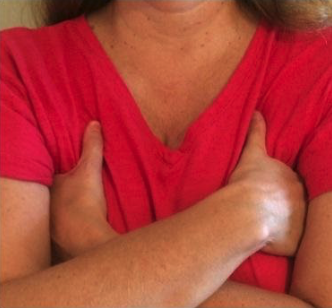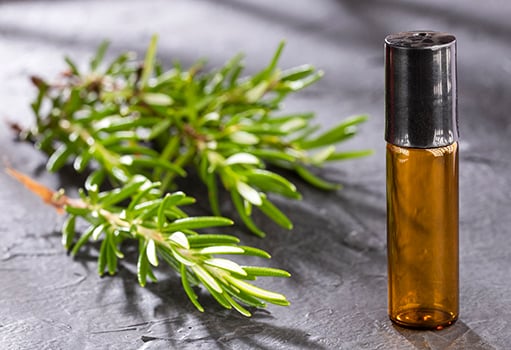Preventing Burnout
It wasn’t just about doing less; it was about doing things differently. I didn’t need a week off; I needed a sustainable rhythm.
I doubted self-care. I thought it was a waste of my time — time I didn’t have to stop and take action on. I was too busy, too driven, too committed to my work as a licensed healthcare provider in private practice managing five clinics. Then burnout hit me like a brick wall, and I realized burnout is real. My search began for any method that would work to help refill my reservoirs.
Before my own experience, I never fully understood how I could possibly be drained by and grow to resent the very thing that gave me purpose. But I learned the hard way that it wasn’t my purpose I resented; it was the imbalance, the strain of pouring all my time and energy into just one area of my life. With nothing replenishing me, this became unsustainable. My work got all of me, and I had nothing left for myself.
That’s when I finally grasped what self-care really is. Self-care is the practice of taking intentional actions to preserve or improve one’s physical, mental, and emotional well-being. It’s not just an occasional indulgence, but a daily necessity, and just as vital as eating, sleeping, and breathing. The mistake I made for years was treating self-care as optional when, in reality, it was the essential piece to lasting success and fulfillment.
For high-achievers, self-care often feels like a luxury. It’s easy to dismiss it as something we’ll get to later or something reserved for people who have more time. But self-care is not just about relaxation; it’s about developing resilience and emotional intelligence — the conscious awareness of my needs. It is the maintenance of our infrastructure that keeps us functioning at our best. Without it, burnout is inevitable.
Chronic stress from work, caregiving, or problem-solving depletes our mental, emotional, and physical reserves. Practices such as setting firm boundaries, engaging in mindful rest, and prioritizing activities that bring joy can replenish those reserves, ensuring I have the energy and clarity to show up fully in both my personal and professional life.
When we don’t actively restore ourselves, we start seeing the familiar symptoms of exhaustion, cynicism, lack of focus, irritability, and even physical illness. Prolonged stress without recovery weakens the immune system, impairs cognitive function, and increases the risk of anxiety and depression.
And yet, even knowing all this, I resisted what my body and mind were telling me. I thought I could push through. I thought self-care was about scheduling breaks or adding “me time” to my calendar. But it was clear that surface-level approach wasn’t enough; I needed something deeper on a daily level.
Energy Tracking
One of the most powerful self-care strategies I implemented was energy tracking. Instead of managing my time, I started managing my energy. For one week, I logged everything I did and rated each task on a scale from -5 (draining) to +5 (energizing).
What I discovered was eye-opening. Some activities, like client sessions, gave me plenty of energy. Others, like back-to-back meetings, left me depleted. Even tasks that seemed small —answering emails, scrolling social media — took more energy than I realized.
If you’re constantly exhausted, questioning your motivation, or struggling to find joy in the things that once inspired you, look at your energy use, not just your time. Where are you pouring out without replenishing? What activities bring you back to yourself?
Based on this information I made adjustments. Instead of treating all tasks equally, I built my day around energy balance. If I had a draining task, I followed it with something restorative. I scheduled movement between meetings, protected my deep work time, and prioritized meaningful connection over busy work.
This approach transformed my productivity and well-being. It wasn’t just about doing less; it was about doing things differently. I didn’t need a week off; I needed a sustainable rhythm.
Many of us see self-care as a task to check off — a workout, a meditation, a break. But self-care is more than that. It’s a way of honoring ourselves daily. It’s not just about what we do; it’s about how we engage with life. It’s about aligning with what nourishes us, setting boundaries, and integrating balance into how we work and live.
If you’re constantly exhausted, questioning your motivation, or struggling to find joy in the things that once inspired you, look at your energy use, not just your time. Where are you pouring out without replenishing? What activities bring you back to yourself?
True self-care isn’t selfish — it’s strategy. And for those of us who are driven, ambitious, and deeply committed to our purpose, it’s the only way to sustain our impact without losing ourselves in the process.
Chantay Golson, LPC, is a leadership coach specializing in emotional intelligence, who helps high-achieving women master work-life balance. Drawing upon 23 years of experience as a medical provider and business owner, she coaches women in reclaiming their energy, focus and success without sacrificing well-being. She can be reached @thelevelingplace.
Find holistic Coaching in the Spirit of Change online Alternative Health Directory.
RELATED ARTICLES:
Let The Body Show You How To Heal
How To Balance Self Care And Giving To Others











